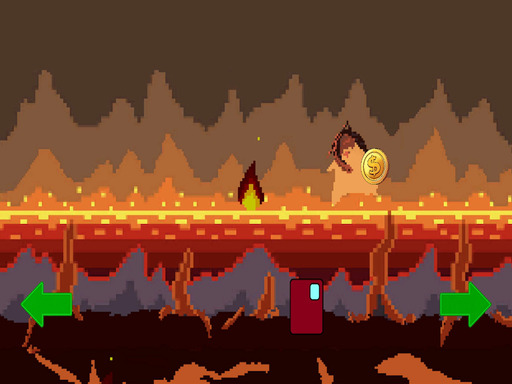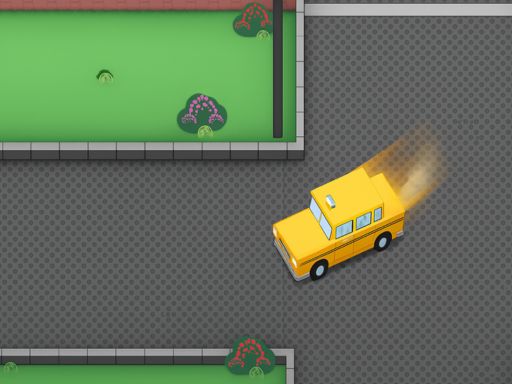Abyssal Secrets
About Abyssal Secrets
Okay, you absolutely *have* to hear about this game I just stumbled into. Seriously, I’m still buzzing from it. It’s called *Abyssal Secrets*, and honestly, I haven’t been this genuinely captivated by an adventure game in ages. You know that feeling when you start a game, and it just clicks? Like, you instantly know it’s going to be one of *those* experiences? Yeah, that’s *Abyssal Secrets* for me.
What I love about games like this is how they take a seemingly simple premise and just explode it into something profound and utterly unexpected. You start out thinking you’re signing up for one thing, and then the game just pulls the rug out from under you in the best possible way. *Abyssal Secrets* kicks off with this really grounded, almost altruistic premise. You’re part of this global initiative, see, to tackle the monumental garbage patches in our oceans. They’ve developed these incredible, highly advanced submersible drones, and your job, initially, is to pilot one of them. You’re down there, deep in the crushing dark, meticulously sifting through plastic islands the size of small countries, trying to clean up humanity’s mess. It’s a noble cause, right? And the early game, honestly, is surprisingly meditative. There’s a quiet satisfaction to it, the hum of your drone’s thrusters, the gentle whir of the collection arms, the way the light from your drone cuts through the murky water, illuminating discarded bottles and tangled nets. You’re doing good, and it feels good.
But then, the *real* magic happens. The game doesn’t just let you stay in that comfortable, eco-friendly groove. As you delve deeper, into areas previously deemed too dangerous or inaccessible due to the sheer density of debris, you start picking up… anomalies. Strange energy signatures that aren’t biological, aren’t geological, and certainly aren’t man-made. The initial thought is, maybe it’s some forgotten, lost sub, or a new type of pollutant. But the readings are just… *wrong*. They’re too structured, too complex. And that’s when the game truly opens up.
You’ll find yourself pushing your drone’s capabilities to the absolute limit, venturing into these vast, unexplored trenches that are choked with centuries of human waste. The brilliant thing about this is how the environment itself becomes a character, almost an antagonist in its own right. The garbage isn't just background clutter; it's a dynamic, shifting labyrinth. You have to use your drone’s manipulator arms to clear paths, not just for collection, but to actually navigate through these incredibly dense, suffocating layers of debris. There are moments where you’re inching through a narrow crevice, the pressure sensors screaming, the hull groaning, and you can almost *feel* the claustrophobia, the weight of the ocean pressing in on you. Then, just as you think you’re trapped, you might spot a faint, unnatural glow in the distance, a glimmer of something that doesn’t belong. And that’s your cue.
The game doesn't just hand you upgrades. You have to *earn* them, discover them. You might find ancient, corroded drone parts or alien components embedded within the trash, and only by analyzing and reverse-engineering them can you unlock new tools. Imagine finding a piece of tech that allows your sonar to pierce through solid rock, revealing vast, hidden caverns beneath the ocean floor. Or a propulsion system that lets you perform a perfect, high-speed drift around a precarious underwater pillar, avoiding a sudden collapse of debris. These aren't just menu upgrades; they feel like genuine discoveries that fundamentally change how you interact with the world. The satisfaction of finally clearing a path you’ve been struggling with, or using a newly acquired tool to solve an environmental puzzle that’s been blocking your progress, it’s just *chef’s kiss*.
And the puzzles, oh man. They’re not your typical block-pushing, switch-flipping fare. They’re deeply integrated into the narrative and the environment. You might come across a colossal, ancient structure, half-buried in sediment and debris, and realize that the garbage itself is part of the puzzle. Maybe you need to strategically clear certain sections to redirect deep-sea currents, or use your drone’s specialized tools to activate dormant mechanisms that have been silent for millennia. The tension builds as you realize that these aren't just random structures; they're remnants of something vast and intelligent, something that predates human civilization.
The real magic happens when you start piecing together the story. It’s not told through long exposition dumps, which I appreciate so much. Instead, it’s through environmental storytelling, fragmented data logs you recover from impossibly old, alien devices, and haunting visual cues. You’ll find yourself drifting through vast, echoing chambers, illuminated only by your drone’s lights, and seeing murals or glyphs etched into the walls that tell a tale of a civilization, or maybe even a life form, that existed here long, long ago. What’s fascinating is how the game manages to evoke both immense wonder and a creeping sense of dread. You’re uncovering these incredible secrets, these profound truths about the planet’s history, but there’s always this underlying question: why was it hidden? And what disturbed it?
This makes me wonder, were these "secrets" deliberately buried, or did they simply become lost to time and the accumulating detritus of humanity? The game doesn’t give you easy answers, and that’s what makes it so compelling. You’re constantly asking questions, constantly pushing forward, driven by an insatiable curiosity. And then, there are the moments when you encounter something truly *other*. Not necessarily hostile, but undeniably alien. It could be a massive, bioluminescent creature that seems to be part of the ancient ecosystem, or a strange energy field that reacts to your drone in unexpected ways. These aren’t jump scares; they’re moments of profound awe and, honestly, a little bit of fear, because you realize just how small and insignificant you are in this vast, unknown world.
In my experience, the best moments come when you’re utterly alone in the crushing dark, the only sound the hum of your drone and the distant, eerie echoes of the abyss, and you stumble upon something truly monumental. A massive, perfectly preserved city, perhaps, nestled deep within a trench, completely untouched by human hands until now. Or a colossal, dormant machine that hums with a faint, ancient power. The scale of it all is just breathtaking. You can almost feel the weight of the water, the cold, the isolation, and then the rush of discovery, the adrenaline of knowing you’re witnessing something no human has ever seen.
The game also manages to weave in this subtle tension about your mission. Are you still just cleaning up garbage, or have you stumbled into something far, far greater, something that might be better left undisturbed? The choices you make, the paths you take, the ancient mechanisms you activate – they all feel like they have weight, like they could alter the very fabric of this forgotten world. It’s not just about getting to the next waypoint; it’s about understanding, about connecting with something ancient and profound.
I’ve always been drawn to games that make you feel like an explorer, a pioneer, and *Abyssal Secrets* nails that feeling perfectly. It’s not about combat, not really. It’s about discovery, about problem-solving, about piecing together a cosmic puzzle. The visual spectacle is incredible, the way the light plays off the debris, the subtle movements of deep-sea life, the sheer, oppressive darkness that suddenly gives way to a burst of alien light. And the sound design? Oh my god, the sound design. The creaks and groans of your drone, the distant, unidentifiable thrums from the deep, the sudden, sharp *ping* of your sonar hitting something metallic and utterly out of place. It’s all so immersive, you lose track of time. You just keep thinking, "One more discovery, one more chamber, just to see what else is down there."
Honestly, if you’re looking for an adventure that’s less about shooting and more about genuine exploration, mystery, and a sense of awe, you *have* to check out *Abyssal Secrets*. It’s a masterclass in environmental storytelling and building a world that feels truly alive, even in its deepest, darkest corners. It’s the kind of game that stays with you long after you’ve turned it off, making you think about the vastness of our own planet, and what incredible, forgotten things might still be hidden beneath its surface. You won't regret diving in.
What I love about games like this is how they take a seemingly simple premise and just explode it into something profound and utterly unexpected. You start out thinking you’re signing up for one thing, and then the game just pulls the rug out from under you in the best possible way. *Abyssal Secrets* kicks off with this really grounded, almost altruistic premise. You’re part of this global initiative, see, to tackle the monumental garbage patches in our oceans. They’ve developed these incredible, highly advanced submersible drones, and your job, initially, is to pilot one of them. You’re down there, deep in the crushing dark, meticulously sifting through plastic islands the size of small countries, trying to clean up humanity’s mess. It’s a noble cause, right? And the early game, honestly, is surprisingly meditative. There’s a quiet satisfaction to it, the hum of your drone’s thrusters, the gentle whir of the collection arms, the way the light from your drone cuts through the murky water, illuminating discarded bottles and tangled nets. You’re doing good, and it feels good.
But then, the *real* magic happens. The game doesn’t just let you stay in that comfortable, eco-friendly groove. As you delve deeper, into areas previously deemed too dangerous or inaccessible due to the sheer density of debris, you start picking up… anomalies. Strange energy signatures that aren’t biological, aren’t geological, and certainly aren’t man-made. The initial thought is, maybe it’s some forgotten, lost sub, or a new type of pollutant. But the readings are just… *wrong*. They’re too structured, too complex. And that’s when the game truly opens up.
You’ll find yourself pushing your drone’s capabilities to the absolute limit, venturing into these vast, unexplored trenches that are choked with centuries of human waste. The brilliant thing about this is how the environment itself becomes a character, almost an antagonist in its own right. The garbage isn't just background clutter; it's a dynamic, shifting labyrinth. You have to use your drone’s manipulator arms to clear paths, not just for collection, but to actually navigate through these incredibly dense, suffocating layers of debris. There are moments where you’re inching through a narrow crevice, the pressure sensors screaming, the hull groaning, and you can almost *feel* the claustrophobia, the weight of the ocean pressing in on you. Then, just as you think you’re trapped, you might spot a faint, unnatural glow in the distance, a glimmer of something that doesn’t belong. And that’s your cue.
The game doesn't just hand you upgrades. You have to *earn* them, discover them. You might find ancient, corroded drone parts or alien components embedded within the trash, and only by analyzing and reverse-engineering them can you unlock new tools. Imagine finding a piece of tech that allows your sonar to pierce through solid rock, revealing vast, hidden caverns beneath the ocean floor. Or a propulsion system that lets you perform a perfect, high-speed drift around a precarious underwater pillar, avoiding a sudden collapse of debris. These aren't just menu upgrades; they feel like genuine discoveries that fundamentally change how you interact with the world. The satisfaction of finally clearing a path you’ve been struggling with, or using a newly acquired tool to solve an environmental puzzle that’s been blocking your progress, it’s just *chef’s kiss*.
And the puzzles, oh man. They’re not your typical block-pushing, switch-flipping fare. They’re deeply integrated into the narrative and the environment. You might come across a colossal, ancient structure, half-buried in sediment and debris, and realize that the garbage itself is part of the puzzle. Maybe you need to strategically clear certain sections to redirect deep-sea currents, or use your drone’s specialized tools to activate dormant mechanisms that have been silent for millennia. The tension builds as you realize that these aren't just random structures; they're remnants of something vast and intelligent, something that predates human civilization.
The real magic happens when you start piecing together the story. It’s not told through long exposition dumps, which I appreciate so much. Instead, it’s through environmental storytelling, fragmented data logs you recover from impossibly old, alien devices, and haunting visual cues. You’ll find yourself drifting through vast, echoing chambers, illuminated only by your drone’s lights, and seeing murals or glyphs etched into the walls that tell a tale of a civilization, or maybe even a life form, that existed here long, long ago. What’s fascinating is how the game manages to evoke both immense wonder and a creeping sense of dread. You’re uncovering these incredible secrets, these profound truths about the planet’s history, but there’s always this underlying question: why was it hidden? And what disturbed it?
This makes me wonder, were these "secrets" deliberately buried, or did they simply become lost to time and the accumulating detritus of humanity? The game doesn’t give you easy answers, and that’s what makes it so compelling. You’re constantly asking questions, constantly pushing forward, driven by an insatiable curiosity. And then, there are the moments when you encounter something truly *other*. Not necessarily hostile, but undeniably alien. It could be a massive, bioluminescent creature that seems to be part of the ancient ecosystem, or a strange energy field that reacts to your drone in unexpected ways. These aren’t jump scares; they’re moments of profound awe and, honestly, a little bit of fear, because you realize just how small and insignificant you are in this vast, unknown world.
In my experience, the best moments come when you’re utterly alone in the crushing dark, the only sound the hum of your drone and the distant, eerie echoes of the abyss, and you stumble upon something truly monumental. A massive, perfectly preserved city, perhaps, nestled deep within a trench, completely untouched by human hands until now. Or a colossal, dormant machine that hums with a faint, ancient power. The scale of it all is just breathtaking. You can almost feel the weight of the water, the cold, the isolation, and then the rush of discovery, the adrenaline of knowing you’re witnessing something no human has ever seen.
The game also manages to weave in this subtle tension about your mission. Are you still just cleaning up garbage, or have you stumbled into something far, far greater, something that might be better left undisturbed? The choices you make, the paths you take, the ancient mechanisms you activate – they all feel like they have weight, like they could alter the very fabric of this forgotten world. It’s not just about getting to the next waypoint; it’s about understanding, about connecting with something ancient and profound.
I’ve always been drawn to games that make you feel like an explorer, a pioneer, and *Abyssal Secrets* nails that feeling perfectly. It’s not about combat, not really. It’s about discovery, about problem-solving, about piecing together a cosmic puzzle. The visual spectacle is incredible, the way the light plays off the debris, the subtle movements of deep-sea life, the sheer, oppressive darkness that suddenly gives way to a burst of alien light. And the sound design? Oh my god, the sound design. The creaks and groans of your drone, the distant, unidentifiable thrums from the deep, the sudden, sharp *ping* of your sonar hitting something metallic and utterly out of place. It’s all so immersive, you lose track of time. You just keep thinking, "One more discovery, one more chamber, just to see what else is down there."
Honestly, if you’re looking for an adventure that’s less about shooting and more about genuine exploration, mystery, and a sense of awe, you *have* to check out *Abyssal Secrets*. It’s a masterclass in environmental storytelling and building a world that feels truly alive, even in its deepest, darkest corners. It’s the kind of game that stays with you long after you’ve turned it off, making you think about the vastness of our own planet, and what incredible, forgotten things might still be hidden beneath its surface. You won't regret diving in.
Enjoy playing Abyssal Secrets online for free on 2mca Games. This Adventure game offers amazing gameplay and stunning graphics. No downloads required, play directly in your browser!
How to Play
AWSD or Analogic to Move Button P or Touch button Orange for Shoot





Comments
This game is awesome! I love the graphics and gameplay.
One of the best games I've played recently. Highly recommended!